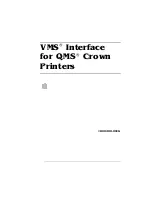
Configuring an Asynchronous Port
5-15
Configuring a Port for Network Access
Telnet Device Service
Telnet is a remote terminal protocol supported by most computers using TCP/IP
protocols. Telnet allows the user at one site to establish a TCP connection to a login
server at another site. Once the connection is established, keystrokes are passed from
one system to the other. Use Telnet service in networks where a variety of hardware
devices with different operating systems must use the selected port.
In this configuration, the device name must be set to
/dev/network
.
The default TCP port number for Telnet is 23; however, another TCP port can be
specified on a per-port basis. All ports with a common Telnet port number form a pool
similar to the rlogin pool.
Note –
If you use Telnet to administer the PortMaster, select a TCP port number for
your shared device port that is different from your administrative Telnet port.
Netdata Device Service
The netdata device service provides a TCP clear channel on which 8-bit data is passed
without interpretation. This service can be used to connect to the selected port from
another serial port on a different PortMaster. This configuration can provide network
connections between hosts on different networks. The netdata service is most
commonly used for special applications which require the use of TCP-CLEAR channel
access to a network socket. This device service provides a direct data link from the
application to the device connected to the PortMaster port. With the socket connection,
no special option negotiation or protocol is required.
The default TCP port number for the netdata service is 6000, but you can specify
another port.
In this configuration, the device name must be set to
/dev/network
.
Configuring a Port for Network Access
You can configure PortMaster asynchronous ports for network dial-in-only access, dial-
out-only access, or both dial-in-and-out access (also known as two-way access). You can
combine dial-in and dial-out access with the login and device services discussed in the
previous sections.
✍
Summary of Contents for PortMaster
Page 16: ...Contents xvi Configuration Guide for PortMaster Products...
Page 26: ...Subscribing to PortMaster Mailing Lists xxvi PortMaster Configuration Guide...
Page 32: ...Basic Configuration Steps 1 6 PortMaster Configuration Guide...
Page 114: ...Configuring WAN Port Settings 6 12 PortMaster Configuration Guide...
Page 128: ...Configuring Login Users 7 14 PortMaster Configuration Guide...
Page 158: ...Restricting User Access 9 16 PortMaster Configuration Guide...
Page 168: ...Configuring Ports for Modem Use 10 10 PortMaster Configuration Guide...
Page 222: ...Frame Relay Subinterfaces 13 16 PortMaster Configuration Guide...
Page 236: ...Troubleshooting a Synchronous V 25bis Connection 14 14 PortMaster Configuration Guide...
Page 252: ...Using ISDN for On Demand Connections 15 16 PortMaster Configuration Guide...
Page 264: ...Using ISDN for Internet Connections 16 12 PortMaster Configuration Guide...
Page 276: ...Configuration Steps for Dial In Access 17 12 PortMaster Configuration Guide...
Page 286: ...Configuration Steps for Shared Device Access 18 10 PortMaster Configuration Guide...
Page 296: ...Troubleshooting a Leased Line Connection 19 10 PortMaster Configuration Guide...
Page 310: ...B 4 PortMaster Configuration Guide...
Page 352: ...Command Index Command Index 6 PortMaster Configuration Guide...
















































